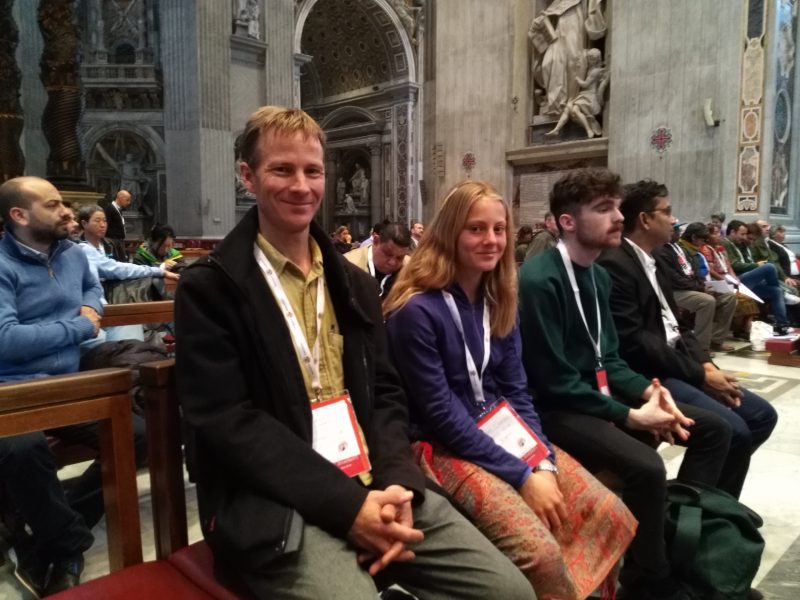by EMMA DODSWORTH
New Zealanders, especially Catholics, should consider what they can do in the face of the increasing power of the god of money.Forrest Chambers, previously of the Palmerston North diocese , said this was one of the insights he took from the World Meeting of Popular Movements in Rome last November.
He was one of more than 150 delegates — from 65 countries — who advocate for the most excluded and vulnerable people around the world.
Mr Chambers’ involvement with the Catholic Worker Movement led to the New Zealand bishops recommending he attend the meeting.
The delegates spent three days reflecting on the issues facing these people, focussing particularly on the “3 L’s”: land, lodge and labour.
Mr Chambers was amazed at the huge difference between his experiences in New Zealand and the experiences of people in other countries.
“Hearing people’s testimonies was extraordinary. I knew it was different in other countries, but hearing about it firsthand was another level entirely,” he said.
One story that struck him was the murder of environmental activist Berta Cáceres in Honduras.
Cáceres was killed in March, 2016 after organising peasant farmers to resist land grabbing by the government.
She had also been a participant at the 2014 World Meeting of Popular Movements.
“The stakes are so much higher in other countries — many people of these popular movements really put their lives on the line,” Mr Chambers said. “That level of resistance just doesn’t happen in New Zealand.”
Hearing the stories from the other delegates made him appreciate living in New Zealand, but he said he also feels a sense of responsibility: “How do we respond to that level of wrongness in the world?”
Questions raised during the meeting included “why do these situations persist in the world, and why are they getting worse?”
Pope Francis addressed these questions in his closing statement, saying that we live under the tyranny of the idol of money, which governs with “the whip of fear, of inequality, of economic, social, cultural and military violence, which spawns ever greater violence in a seemingly unending downward spiral”.
“The entire social doctrine of the Church and the magisterium of my predecessors rejects the idolatry of money that reigns rather than serves, that tyrannises and terrorises humanity,” the Pope continued.
The Holy Father also acknowledged the day devoted to discussing the issue of migrants and refugees.
“I ask you to do everything you can. Never forget that Jesus, Mary and Joseph also experienced the dramatic plight of refugees.
“I ask you to show that special solidarity that exists between people who have suffered.”
Mr Chambers said that many people were interested in the assistance New Zealand gives to refugees, and were impressed by the level of support offered through initiatives such as the Refugee Resettlement Centre in Mangere, Auckland.
Mr Chambers agreed that this is a great initiative, although since New Zealand only takes in a small number of refugees every year, “in the grand scheme of things, it’s not much”.
He said there is still a lot of work to do in order to move forward.
“The god of money seems to be gaining more power in the world – what are we going to do about it?”
Mr Chambers said we need to be discussing this question personally, locally and globally.
Mr Chambers’ 14 yearold daughter Maia accompanied him to Rome and attended the meeting with him.

Reader Interactions